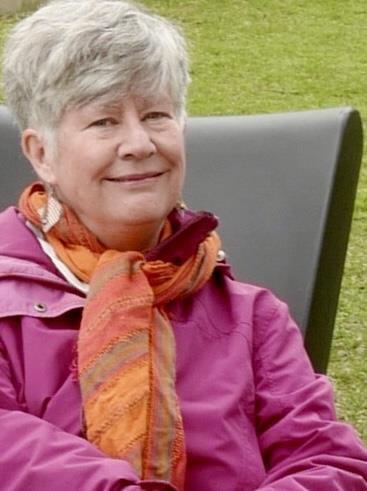Education
- MS, Museum Education, Bank Street College of Education, New York, United States, 1990
- BA, Hampshire College, Amherst Center, United States, 1979
Biography
Cynthia Robinson spent 25 years working in museums before coming to Tufts. She has extensive experience in developing museum programs, curricula and exhibitions, as well as in museum management and administration. She directed a professional museum organization for 10 years, held management positions at three museums, and served on the Museum Education Roundtable's board and the council of the American Association of State and Local History. She was the editor-in-chief of the Journal of Museum Education from 2010 to 2021, and the director of the Tufts Museum Studies program from 2007 to 2025.
Cynthia works on a range of museum issues, including training the next generation of leaders, helping history museums become more relevant to modern audiences, and improving interpretation strategies to reach broader and more diverse audiences. Her publications include "Into the Future: Adult Professional Groups and the 21st Century Museum," Journal of Museum Education 36.1 (Spring 2011), Going Public: Community Program and Project Ideas for Historical Organizations (1999, co-authored with Gretchen Sorin). Exhibitions include Where in the World Does Boston Come From?, which traced how Boston took shape over time, and The Price of Freedom: Anthony Burns and the Fugitive Slave Act, a traveling exhibition installed at the Moakley Federal Courthouse and Suffolk University. Cynthia coordinated the development of Why Concord?, an exhibition that traced one town's role in shaping American history, and wrote the interpretive text for an entire new nature museum in Missouri. Curricula include "Lexington in 1775," an eight-lesson unit used in Lexington's third-grade classrooms, and "Abolition in Lynn," an award winning curriculum unit for 11th and 12th graders.
Cynthia works on a range of museum issues, including training the next generation of leaders, helping history museums become more relevant to modern audiences, and improving interpretation strategies to reach broader and more diverse audiences. Her publications include "Into the Future: Adult Professional Groups and the 21st Century Museum," Journal of Museum Education 36.1 (Spring 2011), Going Public: Community Program and Project Ideas for Historical Organizations (1999, co-authored with Gretchen Sorin). Exhibitions include Where in the World Does Boston Come From?, which traced how Boston took shape over time, and The Price of Freedom: Anthony Burns and the Fugitive Slave Act, a traveling exhibition installed at the Moakley Federal Courthouse and Suffolk University. Cynthia coordinated the development of Why Concord?, an exhibition that traced one town's role in shaping American history, and wrote the interpretive text for an entire new nature museum in Missouri. Curricula include "Lexington in 1775," an eight-lesson unit used in Lexington's third-grade classrooms, and "Abolition in Lynn," an award winning curriculum unit for 11th and 12th graders.
